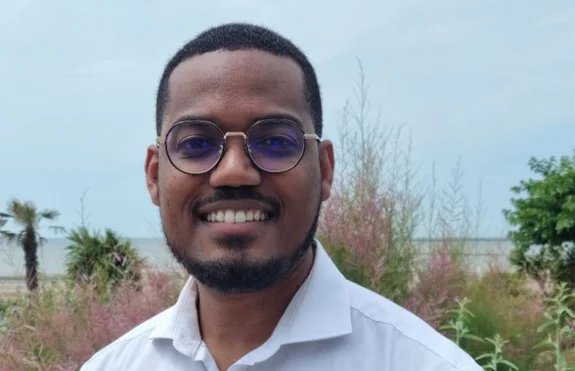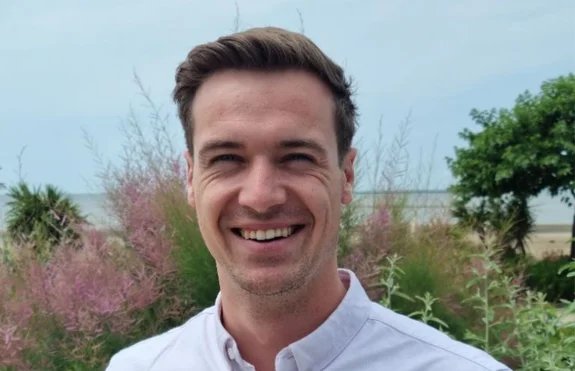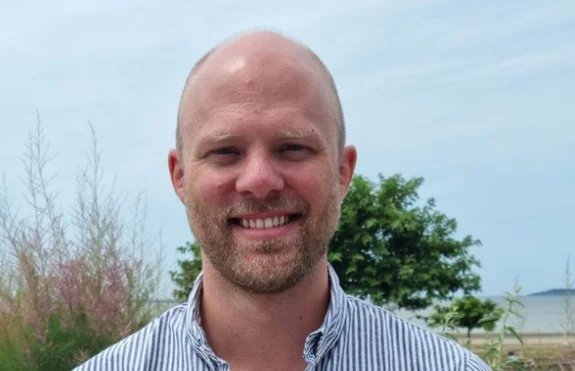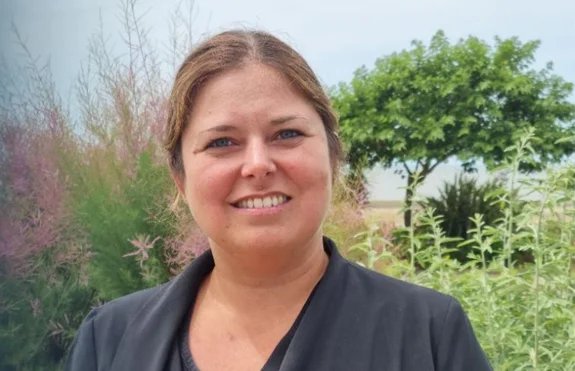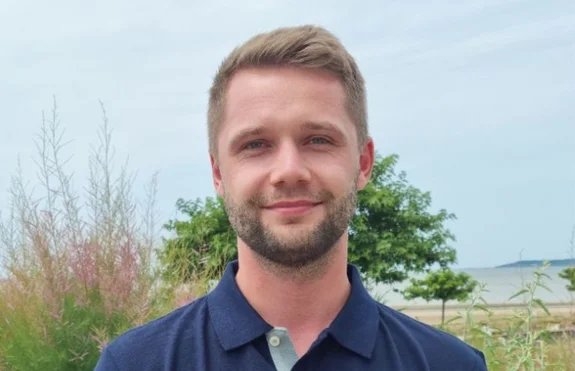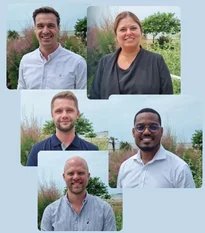
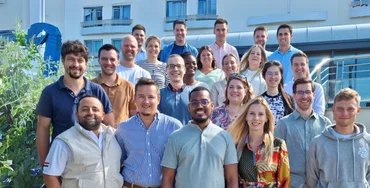
SPIE Talents is an annual European development programme for young managers from across the Group, aiming to enhance their understanding of the business environment, encourage self-reflection on their leadership roles, and address strategic issues.
In 2023, participants were divided into four groups: two focused on sustainability communication and the others on the concept of the circular economy.

We interviewed Robert Schaetzke, who is facilitating one of the circular economy groups and is part of the Operational Division High Voltage at SPIE Deutschland & Zentraleuropa.
Robert, could you explain what the circular economy is and why it is crucial that managers and leaders in SPIE understand it.
Robert: Currently, we operate primarily within a linear economy, where materials are extracted, used to manufacture products, and then discarded after use. In contrast, a circular economy aims to maximise the reuse of components and minimise waste. Given the depletion of natural resources, tomorrow's business leaders must grasp the principles of the circular economy. Additionally, SPIE has made ambitious sustainability commitments, and the circular economy will play a significant role in helping us achieve them. Hence, it is key for SPIE's future leadership.
How are you and the SPIE Talents participants approaching the concept of the circular economy?
Robert: A primary objective of the programme is to encourage participants to think strategically about emerging topics. Although the circular economy might currently seem like a vague concept, we acknowledge its future importance. Therefore, we have tasked the participants with developing a shared understanding of what the circular economy means for SPIE and how it can contribute to increasing our sustainability efforts.
What have been the most significant challenges and successes so far?
Robert: Our most significant challenge regarding the circular economy is that we are not involved in direct product manufacturing. Consequently, our approach to the circular economy revolves around operational planning and component procurement. This means that we must be able to effectively communicate our circular economy requirements to suppliers. As such, we need a common internal understanding of the comprehension of the concept.
And with regard to this, the SPIE Talents have already, in a very short time, covered a lot of ground: we now have a clearer understanding of our position in the circular economy and how we could promote it.
What are the different milestones in the SPIE Talents programme?
Robert : The programme was launched at the end of March. The participants met mid-June, and after that they were able to explain the concept of the circular economy and SPIE's role in it. The next phase involved developing a checklist to assess the preparedness of each operational division for the circular economy. Last November, they presented their findings to the Executive Committee. This is a great opportunity for the participants to showcase their learning and for the Executive Committee to see concrete results.
As the head of an operational division, do you expect to gain insights for your unit?
Robert: Absolutely! In 2023, SPIE Talents is working directly with operational divisions for the first time. From my perspective, this represents a fantastic opportunity to tap into the collective intelligence across SPIE.
Loic Baret – SPIE ICS (France)
Circular economy is a broad subject certain to change internal processes at SPIE. This will provide the Group with the opportunity to attract new business and, ultimately, have a positive environmental impact.
Loic Baret – SPIE ICS (France)Michael Bakker – SPIE Nederland
For me, the SPIE Talents programme offers us the opportunity to create a network and gain more insight into business across the whole of SPIE beyond our own countries – all the while helping us to develop our management skills. Looking into multiple operational divisions in multiple countries as part of the programme, it is very interesting to note the numerous similarities and initiatives regarding circular economy. This shows a common ambition and a goal for progress.
Michael Bakker – SPIE NederlandHubert Remond - SPIE Switzerland
SPIE Talents is an eye-opener to the diversity of SPIE, both in its people and businesses, as well as a learning experience from trainers passionate about what they do. It is really helping me to lead my team through changes. Our subsidiaries have been busy, too, and are already coming up with ideas about addressing the circular economy in day-to-day operations!
Hubert Remond - SPIE SwitzerlandIllona Ramirez - SPIE Deutschland & Zentraleuropa
For me at the Deutschland & Zentraleuropa Headquarters in Germany, the programme is of real use and offers a deeper insight into operational work. I’m very grateful for the opportunity to be a part of it!
The concept of the SPIE Talents Programme is awesome: due to the variety of the courses, you get food for thought both for day-to-day business and strategic issues. What is more, the programme gives you the opportunity to build up an international network among SPIE's future leaders.
Illona Ramirez - SPIE Deutschland & ZentraleuropaJonathan Hochhalter – SPIE Deutschland & Zentraleuropa
SPIE Talents is a unique opportunity for me to work in a cross-functional team with participants drawn from different countries on a topic of such strategic importance and potential impact as circular economy.
For me, the SPIE Talents Program is an enrichment, both personally and professionally. It gives me the opportunity to learn more about other subsidiaries and their activities – and to establish contacts and explore synergies across Europe. By participating in the action project and the various modules, I am learning leadership skills that I would probably not have acquired otherwise.
Jonathan Hochhalter – SPIE Deutschland & Zentraleuropa